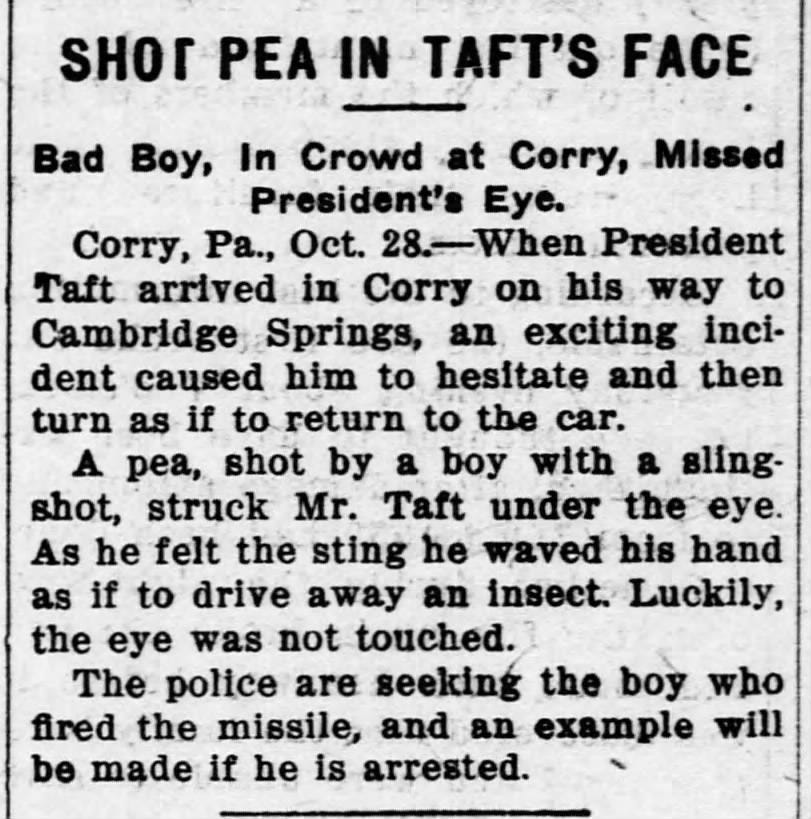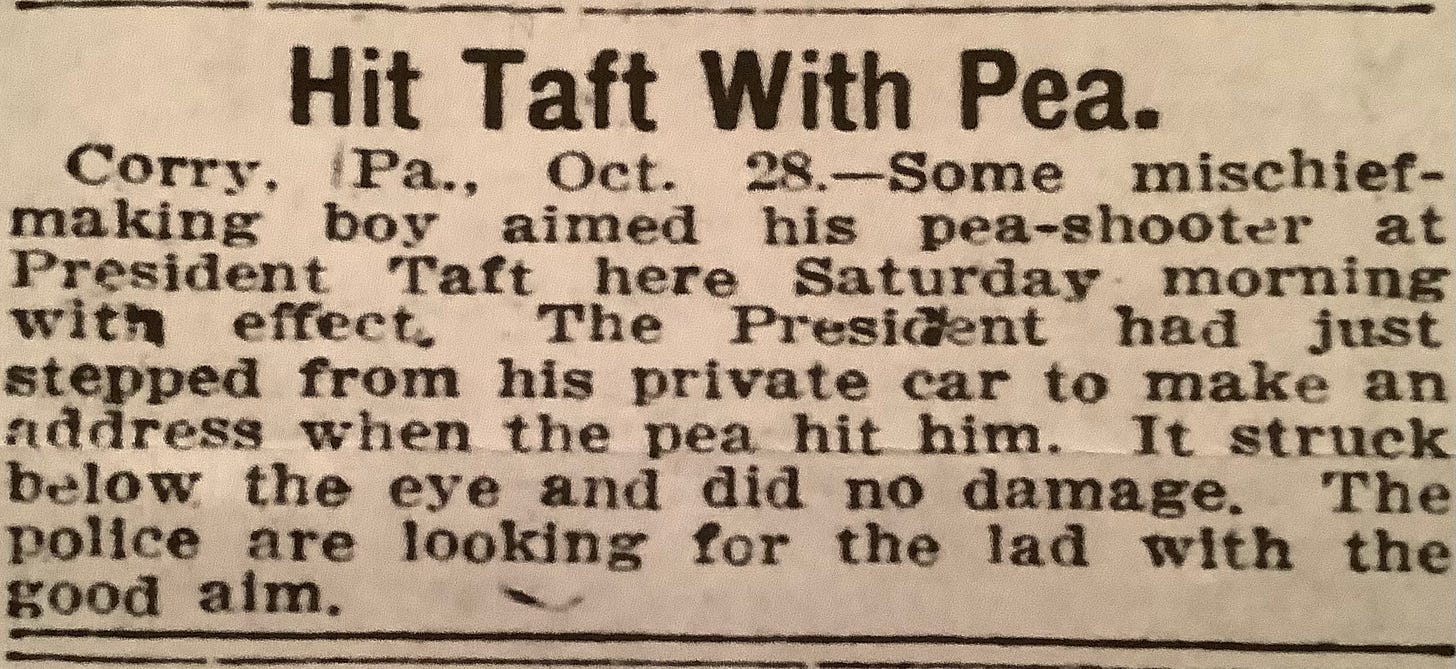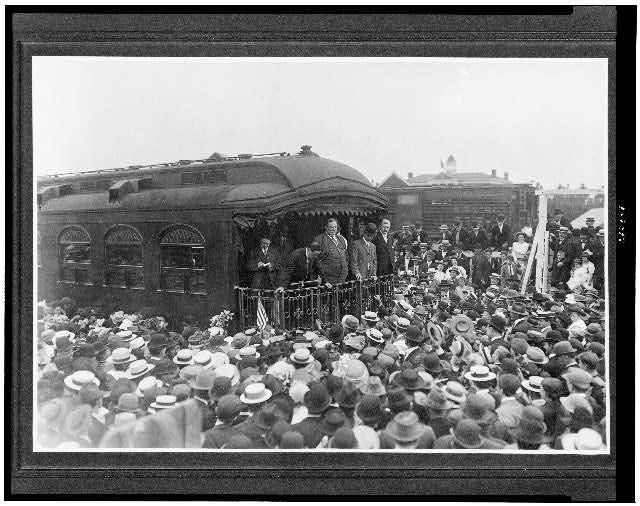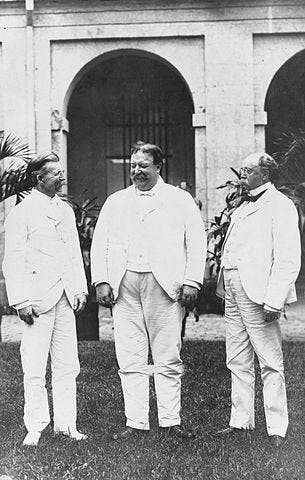I was born and raised in Corry, Pennsylvania where the above incident occurred, and while I readily admit to being a “mischief-making boy,” this one can’t be pinned on me - - it happened in 1912.
William Howard Taft was president from 1909-1913, a time when politicians often rode the rails delivering speeches from the tail-end of the train - a practice known as “whistle stop campaigning.” To give you an idea of how close the mischievous lad with the good aim could get to the president here is a photo of Taft (in the center) speaking in 1909 at a whistle stop:
It’s certainly an obscure incident involving our 27th president, but there are many little-known things about William Howard Taft that deserve greater attention.
For instance, years earlier, Taft, a Unitarian (his wife, Helen, was Episcopalian) earned great respect of the Vatican when, appointed by President William McKinley, he served on the “Taft Commission” and as Governor-General of the Philippines (1901-1903) following the 1898 War with Spain.
His was a great contribution to Church history that should not be forgotten.
While too complicated for our space here, suffice to say that Taft had a Herculean task on his hands in the islands including dealing with the settlement of a tremendous amount of Church-owned property and several very complex problems involving the Spanish friars in the Philippines. For more, Frank Reuter’s Catholic Influence on American Colonial Policies 1898-1903 (Univ. of Texas Press, 1967) is a throughly researched text that details how Taft went to extraordinary lengths to insure warm relations between the US Government and the Vatican.
In 1904, Cardinal Francis Satolli, the apostolic delegate to the US, speaking as the official representative of Pope Pius X, thanked Taft in a public speech:
May it be pleasing to His Excellency, Mr. Taft, to accept the tribute of a grateful heart for all the good he has done in the government of the Philippines, with admirable equity and prudence, and for his respect and deference, as far as was in his power, for the interests of Catholicity in those islands which, under the wings of the American eagle, already feel the warmth of a new life, and which give promise of the most happy future, both political and civil, intellectual and Christian.1
That same year Taft was appointed Secretary of War by President Theodore Roosevelt, a position he held through 1908 until his election as president.
Taft’s time in the Philippines is something I address in my forthcoming biography of Major Edward Vattmann, the Catholic chaplain who was secretly sent on a mission to the Philippines by President Roosevelt.
As for the mischievous lad with the pea shooter in Corry? It appears that - like the infamous D. B. Cooper - he was never found or conclusively identified.

Reuter, 159.






